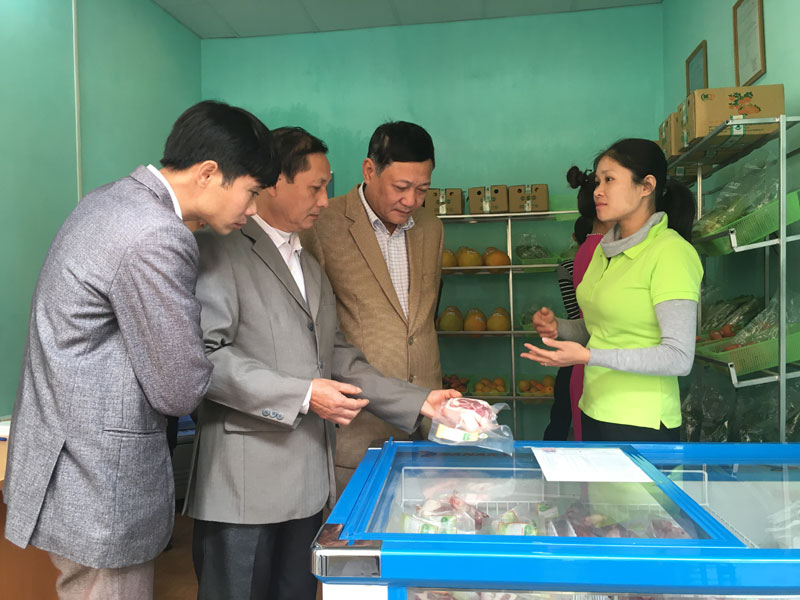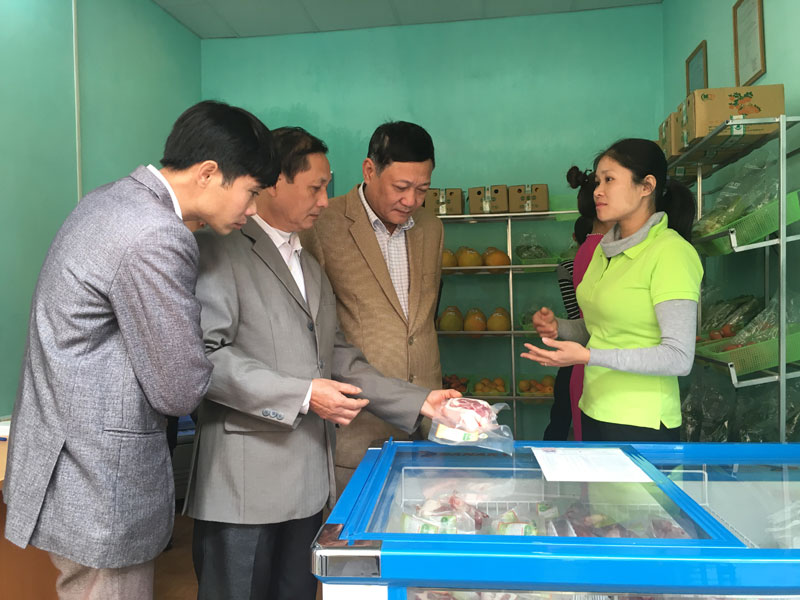



Pork products are produced and supplied in accordance with the safe food chain of Hop Kim Cooperative of animal husbandry and general services (Kim Boi). Photo: Consumers believe in frozen pork products at the store introducing and selling safe food in Bo town - Kim Boi town.
Currently, the cooperative has 80 female pigs and 800-1000 porkers each litter, bringing 200 tons of products each year. With the guideline of "Safety - Quality - Effectiveness - Family Vietnamese Health", the product meets the legal requirements of functional agencies, and also the sensible response, is certified as good agricultural production. According to Director of Cooperative, Mr. Do Duc Tuan, the Cooperative has produced and controlled based on the stages of the chain linking production and consumption of products. Each step complies with the process. Specifically, in the production process, livestock and crop production will be planned to ensure that products are available according to market demand with stringent procedures. For instance, biological pork product of HK process for raising porker is ensured to use 100% of the bio-feed with raw ingredients of 100% derived from plants such as corn, soybeans, wheat bran or rice bran, mixed biological pre-mixture and 2 important components including yeast microorganisms and organic acids naturally for porkers from the weight of 30 up to the time being sold.
In particular, pigs kept on farms of cooperatives do not use antibiotics for 70 days before slaughter. The use of bio-feed also contributes to reducing 80-90% of the odors in the breeding facilities. With the stage of slaughtering, preliminary processing and packaging, the cooperative built a slaughtering premise of over 50m2, has been licensed as a basis of food safety. Here, slaughtered pigs are preliminarily processed, packed, vacuumed and stored in freezer storage tanks, using specialized containers in the process of transporting the product to consumers. The sale area is equipped with suitable equipment such as freezer, cooler to preserve products.
Producing and supplying to the market since December 2017, meat products of the cooperative are labeled, stamps of traceability to help consumers know the information about the production process, date production, expire date, production units, distribution agencies. At present, the products are sold through the wholesale channels, such as the collective kitchen of schools, agencies, some convenience stores inside and outside the city of Hoa Binh. The product quality of the Cooperative is highly appreciated by consumers, for example, dozens of partners are shops, collective kitchens and hundreds of families distributing their products.